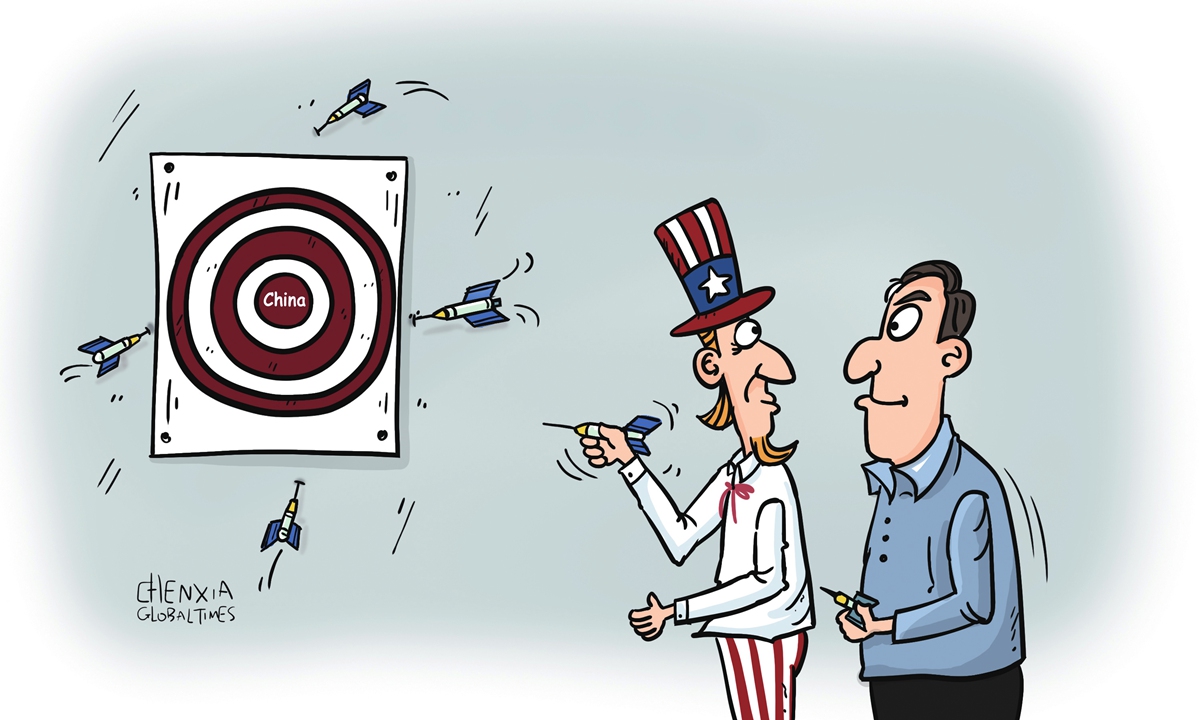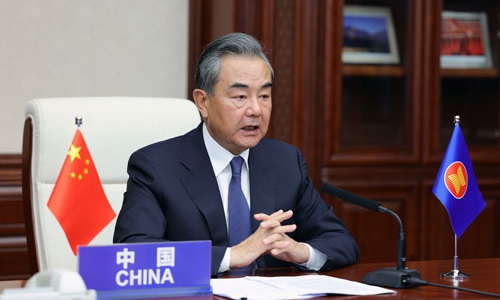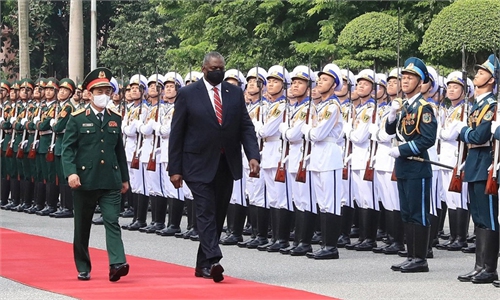Attempt of US, Japan to drag ASEAN in geopolitical row brings more chaos to the world

Illustration: Chen Xia/GT
On Wednesday, Chinese State Councilor and Foreign Minister Wang Yi strongly refuted remarks of the US and Japan on issues related to Xinjiang and Hong Kong during the 11th East Asia Summit Foreign Ministers' Meeting via video link. For those who hope to push Hong Kong back into chaos, Wang warned, "I want to make this clear: Drop illusion about the idea. It is impossible for you to see that day!"Wang's tough stance is a reminder for Washington and Tokyo: They should not believe they are free to create rumors about China worldwide. Every time they tell lies or fabricate words that violate their own conscience, China will respond sternly. Their intention to profit by spreading rumors will never succeed.
By trying to create division during the East Asia Summit, the US and Japan want to make East Asian and Southeast Asian countries choose sides. Focusing on confrontation harms regional countries' interests as well as China's sovereignty, security and interests.
The US and Japan want to establish new rules to handle international relations. In this way, they are refusing to respect the rules under the UN framework. Sovereignty is inviolable. and internal affairs should not be interfered with. These are the most basic principles for the stability of international relations. By trying to sabotage these principles and unscrupulously interfering in China's internal affairs, Washington and Tokyo will worsen their relations with China. They will also bring more chaos to the world.
The US and Japan want to drag ASEAN members in geopolitical conflicts mainly to create trouble for China. They do not want to see China's influence and strength increase in Southeast Asia or the Western Pacific. This is why they are trying to impede China's development. In addition, Washington wants to kidnap Southeast Asian countries into the US' chariot and send them into a strategic competition against China. It is trying to entice Southeast Asian countries to take sides by distorting and smearing China. It is clearly creating crisis.
However, this approach is against the interests of Southeast Asian countries. That's why Singapore Prime Minister Lee Hsien Loong warned Americans at the virtual Aspen Security Forum on Tuesday that China is not the Soviet Union and China is not going to disappear, and that a US-China conflict would be "disastrous for both sides, and the world." Lee's remarks represent the majority of ASEAN members. ASEAN members will not take sides in geopolitical conflicts. Nor will they sacrifice their own interests to safeguard US' hegemony
Tokyo has been following Washington to provoke Beijing. This includes recently agitating issues such as Xinjiang, Hong Kong, and the Taiwan question. Japan has taken its side between China and the US. This is not surprising. It is in line with the notions set by Japanese elites, such as "leaving Asia and entering Europe." Furthermore, Japan is willing to be a vassal of the US to achieve its own interests. But such a phenomenon is not common in Southeast Asia. The Philippines, a US ally, is reluctant to take sides between China and the US. There are very few countries behaving like Japan in terms of their dealings with China and the US. Japan may end up standing on the opposite side of regional integration.
The East Asia Summit Foreign Ministers' Meeting is a platform to discuss multilateral cooperation. The false clichés of the US and Japan at this meeting will gravely influence their international images. In order to achieve the goal of weakening China as soon as possible, Washington has done nearly every possible thing to smear Beijing's decisions and deeds. This is in sharp contrast with its original image of a great power. The US is so anxious that it is going to extremes. This is not the behavior of a confident country. It is a pathological move of a country that is despaired about its future.
The author is professor at the Institute of International Relations of the China Foreign Affairs University. opinion@globaltimes.com.cn


